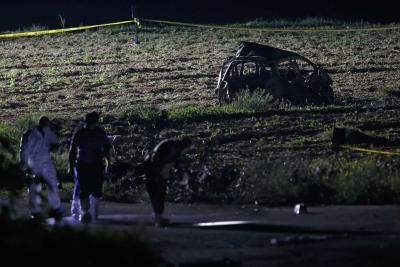Assassination of journalist rocks Malta

VALLETTA- The brutal assassination of a well known critic of the government in Malta has sparked international disgust and threatens to provoke a political crisis on the small Mediterranean island. The state of the island is as such that it is unclear whether this attack was ordered on behalf of slighted politicians, a product of organised crime, or some combination of the two.
Daphne Caruana Galizia, an investigative journalist, was killed in a car bomb in Malta on Monday. The 53 year old Maltese native was one of the most famous writers on the island, well known for her fearless attacks on government corruption and organised crime wherever she found it. Her most recent controversy was in publishing the names of those she found to be involved in the drug cartels that use Malta as a favourite port of call to funnel drugs into Europe.
Galizia’s murder has shocked the international community as the assignation of a journalist in a European country is almost unheard. The car bomb was detonated outside her house in Bidnija on the morning of Oct. 16. Her son witnessed the attack and described “running around the inferno in the field, trying to figure out a way to open the door.”
Caruana Galizia published evidence of President Muscat's alleged corruption found in the Panama papers, a report that set in motion events that led to an early election last June. She was not a popular figure amongst governmental workers. The judge presiding over her murder case removed herself due to a conflict of interest as Caruana Galizia had been openly critical of her in the past, a move which pleased the family of the deceased.
Sadly, she remains as controversial in her death as she had been in life. A police sergeant, Raymond Mifsud, has been suspended for celebrating her murder openly on twitter, saying that he was “feeling happy.” The Malta Press Association has responded to this clearly abhorrent endorsement of a violent crime by a senior member of police force with the statement: “the police are there to safeguard everyone's security and not, on the contrary, to approve of the most serious of criminal acts which could even undermine the fundamental rights of all people in a democracy.”
Much of the reaction to this case has demonstrated deep issues within Maltese society. Despite the notion that they are a developed western nation with values of personal freedom, Caruana Galizia’s son said, “this is where we are: a mafia state where you can now change your gender on your ID card, and thank God for that, but where you will be blown to pieces for exercising your basic freedoms.”
Thankfully, international assistance with the murder case has been requested by the Maltese authorities from the FBI. The international attention, including that of the European Commission, will surely only serve Caruana Galizia’s lifelong project to shine a light into the dark corners of the island nation.
kvh


